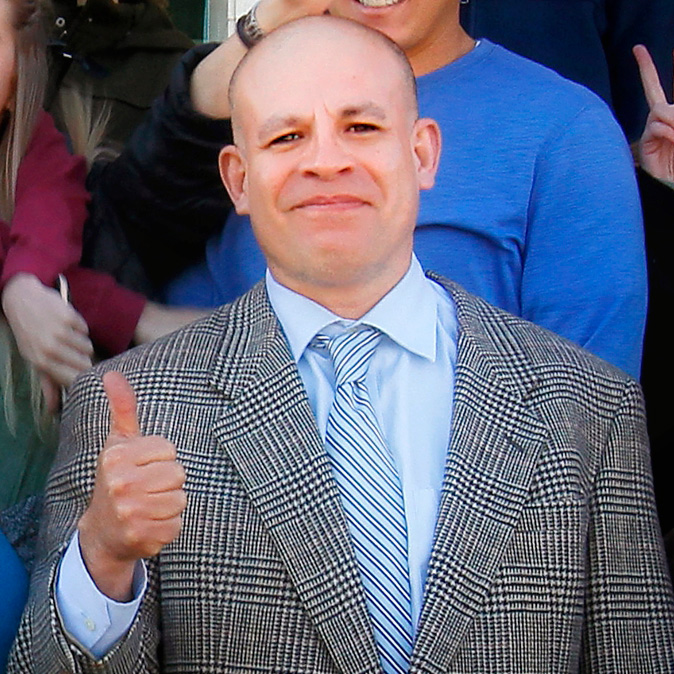
From Guadalajara to Briar Cliff: Willie Suárez’s Educational Journey
By Eli Meschko
Media & Communications Coordinator
Growing up in Guadalajara, Mexico, Willie Suárez always knew he wanted to be a professor.
As a child, he was a huge history buff who spent most of his time reading. Whether it was history books or encyclopedias, he knew early on he wanted to teach history.
His parents never discouraged this dream, but they did talk with him about the possibility of not earning enough as a professor in Mexico.
So, he initially earned a bachelor’s degree in business administration. That decision ultimately led him to move to the United States for college, knowing he would need to learn English to succeed in the business world.
“I took classes in English at the University of Guadalajara,” Suárez said. “The problem was that the teachers teaching English didn’t even fully know English. I figured it would be best to go to the U.S. and force myself to speak English and learn it that way."
After graduating, he moved to Lincoln, Nebraska, where he studied English as a Second Language at Union College, now known as Union Adventist University. While there, a professor asked if he had ever considered teaching language.
It wasn’t something he had thought about before, but with his knowledge of Spanish, growing command of English, and love for history, he decided to pursue that path.
Suárez went on to earn both a master’s degree and a doctorate in modern languages and literature from the University of Nebraska-Lincoln.
In 2006, he accepted a position as a Spanish instructor at the University of South Dakota. After two years, he moved to Sioux Falls to teach Spanish at the University of Sioux Falls.
From 2012 to 2014, he split his time between the University of Sioux Falls, where he served as an assistant professor of Spanish, and South Dakota State University, where he was a Spanish instructor. Eventually, he heard about an opening at Briar Cliff University.
“One thing that caught my eye about Briar Cliff was that it is a Catholic Franciscan institution,” Suárez said. “I always felt connected to Franciscan values since I attended a Franciscan elementary school back home.
“I’ve been here for 10 years, and it’s been a blessing,” he said. “The presence of Sister Francis for Franciscan Sisters showed me how important Franciscan values are in our society. It makes a huge difference on our campus, and it’s the best place I’ve ever worked.”
Suárez was initially hired as the director of the Spanish program. He still holds that position today, along with several others: chair of the Department of Arts and Humanities, co-director of the Writing, Translation and Interpretation Center and director of the Center for Excellence in Learning and Teaching.
He also serves as the president of the board of Unity in Action, a Latino nonprofit organization in Sioux City. The organization provides educational opportunities to the Latino community through scholarships and hosts cultural festivals in South Sioux City such as Celebrando Siouxland.
“When we began the parade, there were maybe a few hundred people,” Suárez said. “This past September, we had an estimated 8,000 people at the parade and 12,000 who attended the festival.”
While he’s proud of his work at Briar Cliff and with the nonprofit, Suárez said his biggest achievement is having his work published in a book.
He contributed the chapter “The Creole in the Social Mirror of the 19th Century” to the book “The Irrational Universe in Hispanic Literature.”
In his chapter, he analyzes two colonial-era novels: “El Periquillo Sarniento” and “Don Catrín de la Fachenda” by José Joaquín Fernández de Lizardi. He explores how social structures, while appearing rational, often contain irrational elements.
“That’s very much what I looked for and talked about [in my chapter],” Suárez said. “How we combine the rational and irrational in order to explain things so we can understand them.”
For him, that same idea carries into the classroom, not just through literature and language but also through culture.
“Many of BCU’s students only take one or two language classes, so I always emphasize the cultural part,” Suárez said. “When they start to see other perspectives, they also start to learn more about themselves. They begin to understand how to respect those who are different from them.”
As Suárez continues his work in the classroom, his research and in the community, he remains focused on what first inspired him: a love of history, a passion for learning, and the belief that education can transform lives.